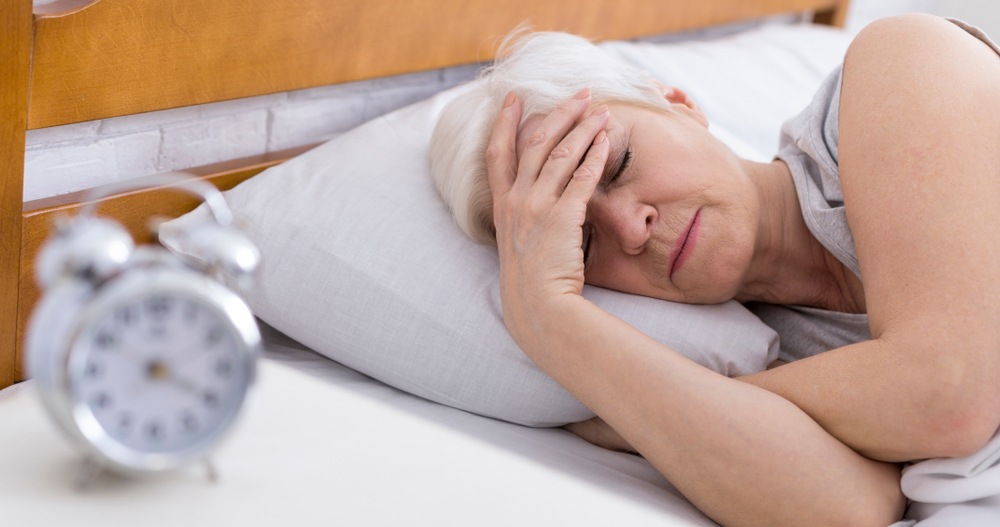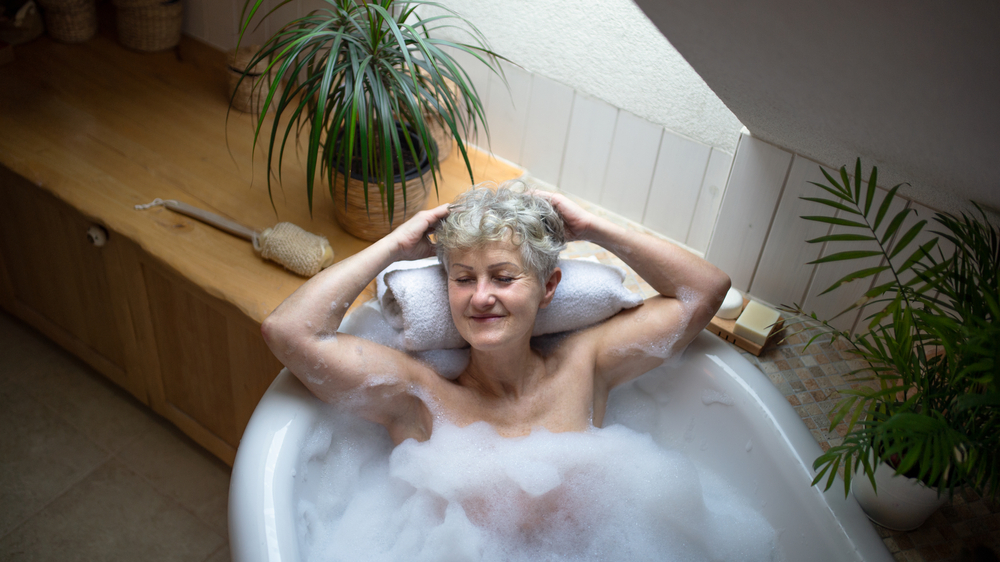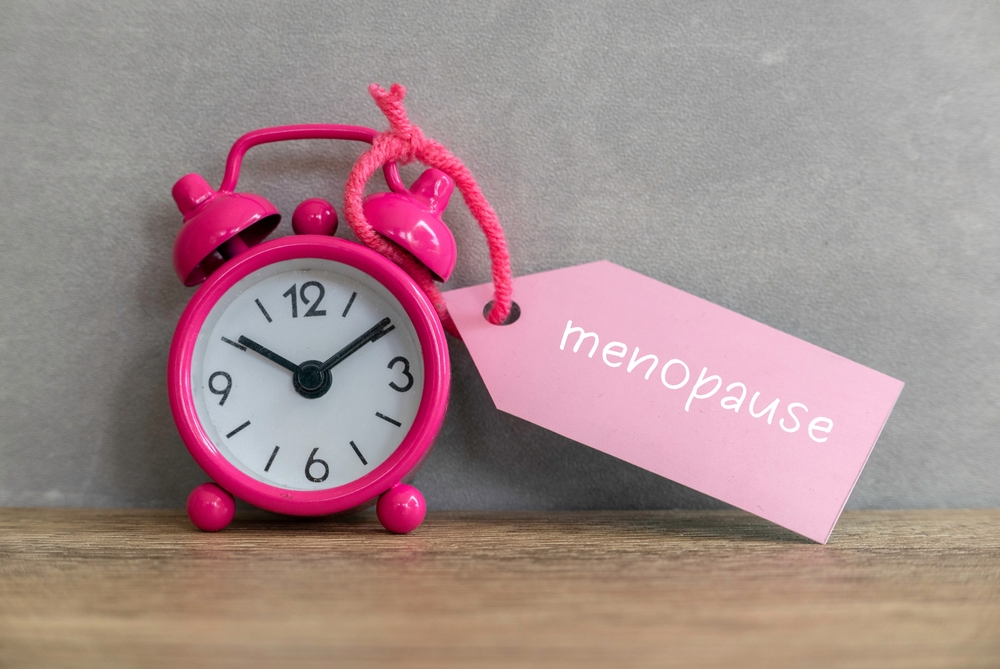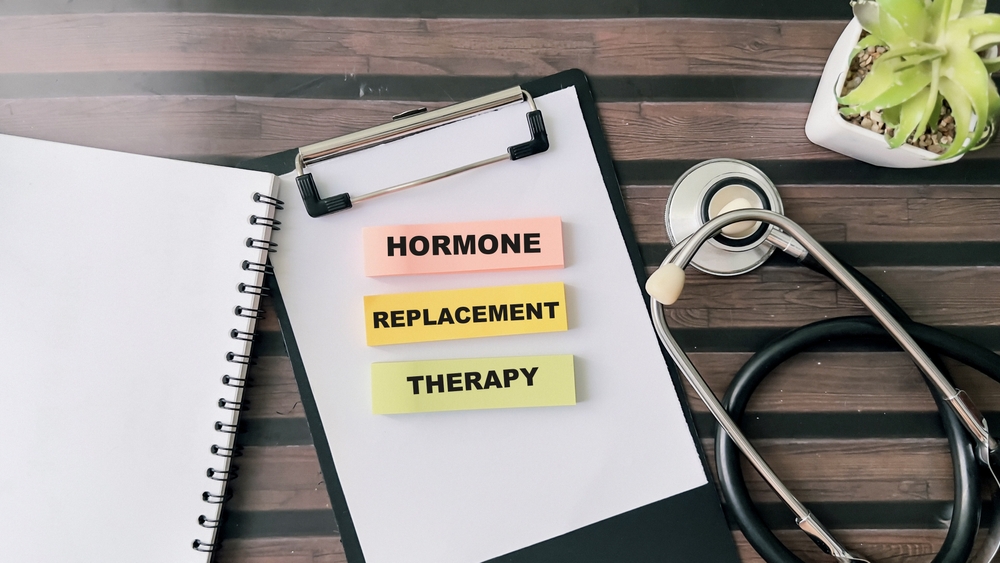Quick Summary
- Menopause can affect sleep because of changes in hormones that impact melatonin, body heat, and mood.
- Hot flashes and night sweats are common and often wake women up during the night.
- Many women experience difficulty falling asleep or staying asleep throughout the night during menopause.
- Strategies like maintaining a sleep schedule, avoiding large meals and caffeine, and reducing screen time can help.
- Relaxation methods such as warm baths, deep breathing, and herbal teas like chamomile may support better sleep.
- Knowing how to sleep during menopause involves tracking symptoms, seeking medical advice when needed, and exploring options like hormone therapy or support from programs like Fem Excel.
Menopause often brings changes that impact a woman's sleep quality. As hormone levels drop, the body reacts in ways that can make rest more difficult.
During or around menopause, many women start waking up during the night or struggle to fall asleep. According to a study, 40-69% of women on menopause report sleep problems. These are mostly linked to vasomotor symptoms, which make it hard to stay asleep or feel rested in the morning. [1]
In addition, hormonal changes during menopause can affect mood and increase feelings of stress or anxiety. These fluctuations in emotions can create challenges for both the body and mind to relax at night.
This blog will explain why sleep becomes harder during menopause. It will also discuss how to sleep better during menopause, with a focus on overall women's health and well-being.

The Link Between Menopause And Sleep Disturbances
Many women notice changes in their sleep during menopause. Shifts in hormone levels often cause these changes. As estrogen and progesterone drop, the body has a harder time managing sleep. These hormonal changes affect the depth and duration of your sleep.
One common issue during this stage is vasomotor symptoms like hot flashes and night sweats. A hot flash is a sudden sensation of heat that may cause sweating and a flushed appearance. When it happens at night, it often wakes you up and is referred to as night sweats. These episodes can occur several times each night, making it difficult to get a good rest.
Because of these symptoms, sleep disturbances are very common during the menopause transition. Some women take longer to fall asleep. Others wake up often or feel too warm and uncomfortable to rest. Even after several hours of sleep, they may still feel tired in the morning.
These sleep problems can persist into postmenopause. While some women see improvement over time, others continue to wake up often or sleep lightly. Poor sleep can also affect mood and cause higher stress levels, which then makes it even harder to sleep. For many, these changes in sleep are linked to the overall symptoms of menopause.
Common Sleep Issues Menopausal Women Face
Many menopausal women struggle with different types of sleep problems. These often include insomnia, which means having trouble falling asleep or waking up too early.
Some women lie in bed for hours before they finally doze off. Others fall asleep quickly but wake up during the night and are unable to fall back asleep. The inability to stay asleep can leave people feeling tired and unfocused the next day.
These patterns are common during menopause and are often linked to changes in hormone levels and other symptoms like night sweats or anxiety. Repeated nights of poor sleep can begin to affect a woman's overall health. Lack of rest may cause low energy, mood changes, or forgetfulness.
It may also increase the risk of other health problems over time, such as high blood pressure or a weakened immune system. Even if the body gets enough hours in bed, broken sleep can still leave someone feeling unrested.
That is why it is important to look at not just how long someone sleeps but also how deeply and smoothly they sleep through the night.
Strategies To Improve Sleep During Menopause
Getting a good night's sleep during menopause can be challenging. Hormonal changes affect how the body feels and rests.
Many women notice they do not sleep as well as they did before. However, small daily habits can make a big difference. When these habits focus on both the environment and routine, sleep can slowly improve. Some of the habits include:
Regular Sleep Schedule And Sleep Hygiene
Going to bed and waking up at the same time every day helps reset your body clock. This is known as keeping a regular sleep schedule. Over time, the body learns when it is time to sleep and when to wake up. This rhythm can help you fall asleep faster and stay asleep longer.
Good sleep hygiene means building habits that support restful sleep. This includes using your bed only for sleeping. Avoid watching shows or reading on your phone while in bed. These activities confuse your brain and make it harder to relax. To help your body know it's time to sleep, dim the lights and lower the noise for at least 30 minutes before bed.
Also, try not to nap for too long during the day. Short naps under 30 minutes can be helpful if you feel very tired, but long or late naps may interrupt your nighttime sleep.
Maintain A Comfortable Temperature And Avoid Large Meals Or Caffeine
Menopause can cause changes in body temperature, which makes it harder to stay asleep. A fan or open window can cool down your room and prevent night sweats, reducing discomfort. You can use light bedding and wear breathable clothes.
Avoid eating heavy meals close to bedtime, as it can lead to poor digestion and often causes restlessness at night. Try to finish eating at least two hours before you sleep. Avoid spicy or greasy food, as it may trigger discomfort. Additionally, caffeine can make it harder to sleep, so it's best to avoid it after early afternoon.
Reduce Screen Time And Blue Light Exposure Before Bed
Many people use phones, tablets, or televisions at night. However, screen time before bed can make it harder to fall asleep.
These devices emit blue light, which signals the brain to stay awake. This light delays the release of melatonin, a hormone that helps the body feel sleepy. As a result, it becomes more difficult to relax and fall asleep.
To improve sleep, it helps to turn off screens at least one hour before bed. If screen use is needed, switching on a blue light filter or using blue light glasses may reduce the impact. Instead of scrolling, try reading a paper book, listening to soft music, or doing light stretches. These activities can help the body wind down more gently.
A large study looked at screen use and sleep in over 122,000 U.S. adults. It found that those who used screens daily before bed had poorer sleep quality and shorter sleep. On average, they slept about 50 minutes less per week and went to bed later. People who stayed up late naturally were affected even more.
These findings suggest that screen use can disrupt sleep in adults, not just teenagers or children. [2]

Relaxation And Bedtime Techniques That Help You Sleep Better
A consistent bedtime ritual can improve sleep quality by preparing both your body and mind for rest. For many people, the transition from a busy day to a quiet night does not happen automatically.
Establish a calming pre-sleep ritual to help reduce stress and promote a more restful sleep. Simple practices, such as taking a warm bath, practicing deep breathing, and listening to soothing music, can help ease the transition into sleep. Deep breathing helps calm the nervous system.
By slowing down your breath, you tell your brain that it is safe to relax. A soothing bath roughly 90 minutes prior to sleeping can also support better sleep. The drop in body temperature after the bath signals your body that it is time to rest.
Additionally, soothing music can shift focus away from stressful thoughts and promote a more peaceful mood. Choose slow, gentle sounds without lyrics. Prepare herbal teas, such as chamomile or lemon balm, which may also support relaxation. These teas do not contain caffeine and have been linked to calming effects in several studies.
A randomized controlled trial was conducted to determine the effects of chamomile extract on sleep in 60 elderly participants. The participants were split into two groups: one group took chamomile capsules (200 mg) two times a day for 28 days, whereas the control group received placebo capsules. [3]
Initially, both groups experienced poor sleep quality, with no significant differences observed. However, by the end of the intervention, the treatment group showed a marked improvement in sleep quality compared to the control group.
Medical And Natural Treatments For Menopause Insomnia
Menopause insomnia makes it harder for many women to get consistent, restful sleep. When sleep problems continue for weeks or begin to affect your daily routine, it is a good idea to speak with your doctor.
Ongoing sleep issues do not always improve on their own and might signal changes in hormones or other health concerns. Consult a doctor to identify the underlying cause and recommend the right treatment. Hormone therapy, also called hormone replacement therapy (HRT), is one possible option.
It works by replacing lower levels of estrogen and progesterone, which can affect the sleep hormone melatonin. HRT may help reduce night sweats and hot flashes, two common reasons women wake up at night. But HRT is not right for everyone. Some women may face higher risks of heart disease or certain cancers.
This is why it is important to talk with a doctor before starting treatment. There are also natural ways to improve sleep during menopause. Drinking caffeine-free green tea in the evening may help you relax. Some women also find relief with low doses of melatonin or certain medications that support better sleep.
Additionally, Fem Excel provides a full plan for managing menopause symptoms. This includes bioidentical hormone therapy, support for thyroid function, healthy lifestyle changes, and medications like metformin or Semaglutide for weight control.
These combined treatments target several causes of poor sleep. Whether you choose medical or natural methods, the goal is to find what helps your body rest better and wake up feeling refreshed.
Final Thoughts
Menopause may change your body's rhythms, but it does not mean you must accept poor sleep as your new normal. Women can improve their sleep by making small, consistent adjustments to their routines and health care.
Start by observing your symptoms. Notice when your sleep becomes disturbed, what you ate, how active you were, or how stressed you felt. Track patterns over time and bring this information to your doctor. A detailed record makes it easier to find the right solution.
Whether it is hormonal changes, anxiety, or lifestyle issues, understanding the cause allows for more targeted care. Sleep affects more than just rest. It influences memory, mood, immune function, and long-term health. For women, especially during menopause, sleep quality is a linchpin in managing weight, energy levels, and emotional balance.
Knowing how to sleep during menopause can improve your overall well-being and give you more control over your day. If you feel stuck or unsure where to begin, support is available. Fem Excel offers a personalized care approach with hormone balancing, thyroid support, and weight management tools.
Their team helps you take the next step toward better sleep and improved well-being.
References
1. Maki, Pauline M. PhD1; Panay, Nick BSc, FRCOG2; Simon, James A. MD, MSCP3. Sleep disturbance associated with the menopause. Menopause 31(8):p 724-733, August 2024. | DOI: 10.1097/GME.0000000000002386
2. Zhong, C., Masters, M., Donzella, S. M., Diver, W. R., & Patel, A. V. (2025). Electronic Screen Use and Sleep Duration and Timing in Adults. JAMA network open, 8(3), e252493. https://doi.org/10.1001/jamanetworkopen.2025.2493
3. Adib-Hajbaghery M, Mousavi SN. The effects of chamomile extract on sleep quality among elderly people: A clinical trial. Complement Ther Med. 2017 Dec;35:109-114. doi: 10.1016/j.ctim.2017.09.010. Epub 2017 Oct 13. PMID: 29154054.






